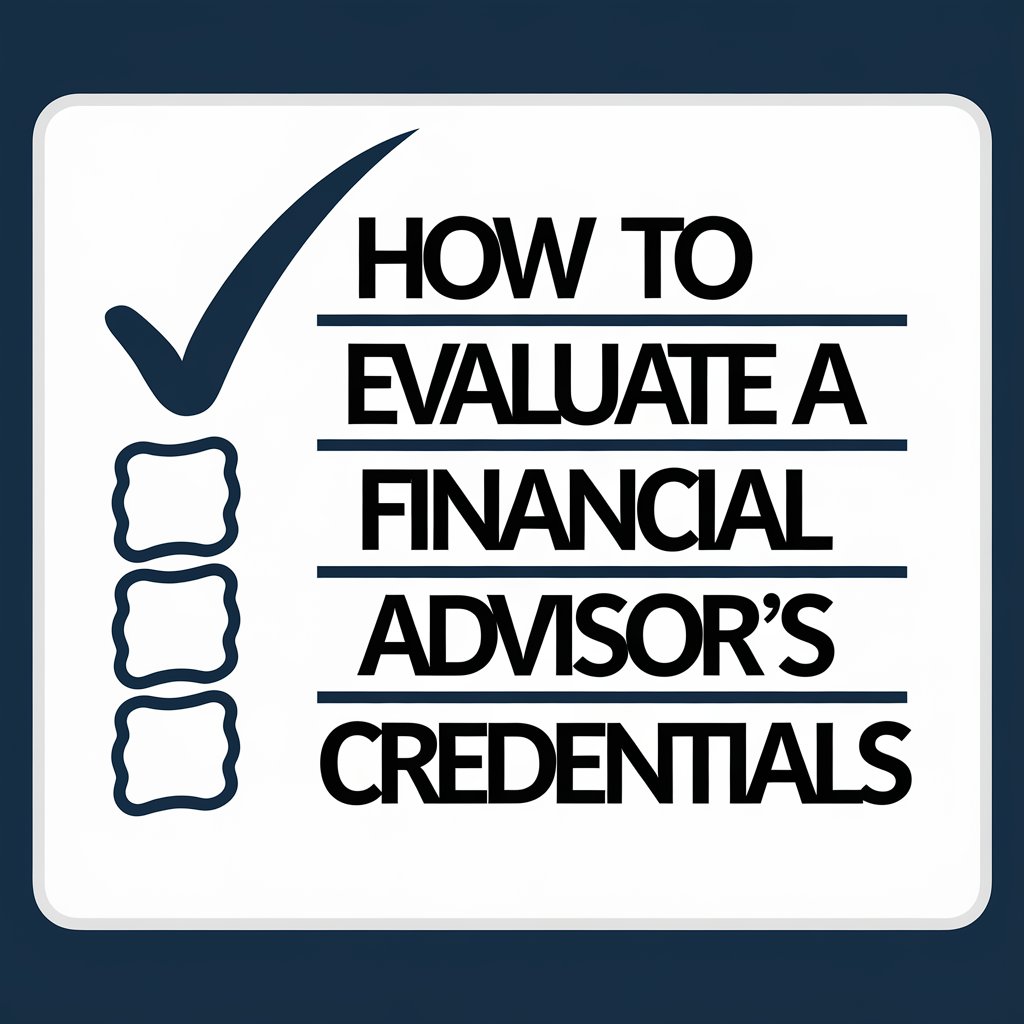Introduction: Why Credentials Matter
Evaluating a financial advisor’s credentials is crucial for ensuring that you receive sound financial advice tailored to your goals. Advisors with the right qualifications and experience are better equipped to offer strategies that align with your financial objectives, while those lacking proper credentials could expose you to risks and suboptimal advice. Understanding how to assess an advisor’s qualifications helps in making an informed decision about who will manage your investments and financial planning. For those seeking to deepen their investment knowledge, a resource like Quantum Lumina can provide valuable educational insights to better understand what to look for in a qualified advisor.
Understanding Financial Advisor Certifications
Certified Financial Planner (CFP):
The CFP designation signifies a high standard of knowledge and ethical practices. To earn this credential, advisors must complete rigorous education requirements, pass a comprehensive exam, and demonstrate professional experience. CFPs are trained to provide holistic financial planning, covering areas like retirement, estate, and tax planning.
Chartered Financial Analyst (CFA):
The CFA designation focuses on investment management and analysis. CFAs must pass three levels of exams covering economics, financial reporting, and portfolio management, and demonstrate extensive work experience. This credential is ideal for advisors specializing in investment strategies and portfolio management.
Certified Public Accountant (CPA):
While CPAs are traditionally known for accounting, their financial planning specialization, known as Personal Financial Specialist (PFS), combines accounting expertise with financial planning. CPAs with PFS credentials are adept at tax planning and financial strategy integration.
Certified Investment Management Analyst (CIMA):
CIMAs are experts in advanced investment management. They undergo extensive training in portfolio construction and asset management, making them suitable for managing complex investment portfolios and advanced financial strategies.
Other Relevant Certifications:
Certifications like Chartered Financial Consultant (ChFC) and Personal Financial Specialist (PFS) offer additional layers of expertise. ChFCs focus on comprehensive financial planning, while PFS professionals, an extension of CPAs, provide in-depth financial planning services.
Assessing Education and Experience
Formal Education:
A strong educational background in finance, economics, or related fields lays the foundation for sound financial advising. Many advisors hold degrees in finance, economics, or business, which provides them with critical financial knowledge and analytical skills.
Professional Experience:
Experience in the financial industry is key to practical expertise. Look for advisors who have demonstrated experience in financial planning, investment management, or other relevant areas. Experience in different market conditions can provide valuable insights and adaptability.
Continuing Education:
The financial industry is dynamic, and ongoing education is essential for staying updated with new regulations, market trends, and financial products. Check if the advisor participates in continuing education or holds additional certifications to stay current.
Reviewing Regulatory Compliance and Licenses
FINRA Registrations:
The Financial Industry Regulatory Authority (FINRA) regulates brokers and investment advisors. Ensure that the advisor is registered with FINRA and check their registration status for any red flags. FINRA’s BrokerCheck tool provides detailed information about an advisor’s background and regulatory compliance.
State Licensing Requirements:
Financial advisors must adhere to state-specific licensing requirements, which vary by state. Verify that the advisor holds the necessary licenses for your state and is compliant with local regulations.
Broker-Dealer and Investment Adviser Registrations:
Understand the differences between broker-dealer and investment adviser registrations. Broker-dealers primarily facilitate securities transactions, while investment advisers offer financial advice. Ensure that the advisor holds the appropriate registration based on their role.
Checking Background and Disciplinary History
FINRA BrokerCheck:
Use FINRA’s BrokerCheck to review the advisor’s disciplinary history, registration status, and employment history. BrokerCheck can reveal any past violations, customer complaints, or legal issues, which are crucial in assessing the advisor’s credibility.
SEC Investment Adviser Public Disclosure (IAPD):
The SEC’s IAPD database provides information about investment advisers, including their registration status and any disciplinary actions. Review this database to ensure the advisor has a clean record and is properly registered.
Evaluating Professional Memberships and Affiliations
Professional Associations:
Membership in professional associations such as the Financial Planning Association (FPA) or the CFA Institute indicates a commitment to industry standards and ethical practices. These memberships often require adherence to a code of ethics and ongoing professional development.
Commitment to the Profession:
Affiliations with reputable organizations reflect the advisor’s dedication to maintaining high professional standards and staying updated with industry changes. Such memberships also provide access to valuable resources and networking opportunities.
Understanding Fee Structures and Conflicts of Interest
Fee Structures:
Financial advisors can have different fee structures, including fee-only, commission-based, or fee-based models. Fee-only advisors charge solely for their services and do not earn commissions from selling products, reducing potential conflicts of interest. Commission-based advisors earn from product sales, which may influence their recommendations. Fee-based advisors combine both methods, which requires careful consideration of potential conflicts.
Conflicts of Interest:
Identify any potential conflicts of interest by examining how the advisor is compensated. Advisors with commission-based structures might have incentives to recommend certain products. Ensure that any potential conflicts are disclosed and that the advisor’s recommendations align with your best interests.
Reviewing Client Testimonials and References
Client Feedback:
Client testimonials can provide insights into the advisor’s performance and client satisfaction. Look for reviews that discuss the advisor’s communication, professionalism, and effectiveness in managing financial goals.
References:
Request references from current or past clients to get a direct perspective on the advisor’s capabilities. Contact these references to ask specific questions about their experiences and the advisor’s strengths and weaknesses.
Conclusion: Making an Informed Decision
Evaluating a financial advisor’s credentials involves a comprehensive review of their certifications, education, experience, regulatory compliance, and client feedback. By thoroughly assessing these factors, you can make a well-informed decision and select an advisor who aligns with your financial goals and ethical standards. Ensure that all potential advisors meet the necessary qualifications and have a track record of trustworthy and effective service.






